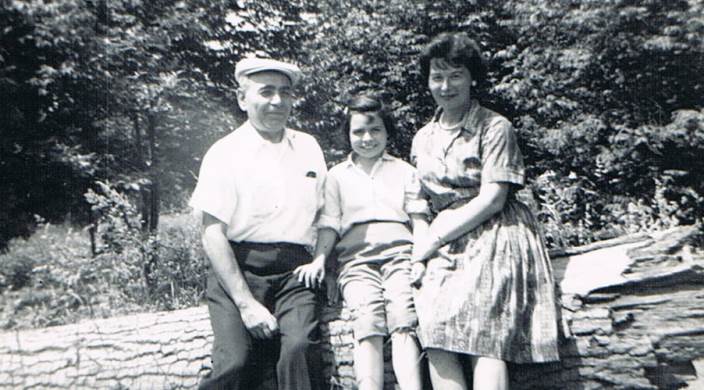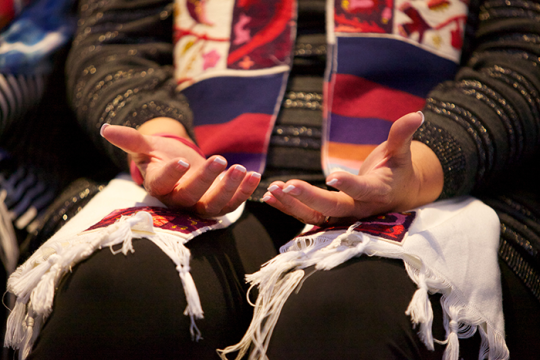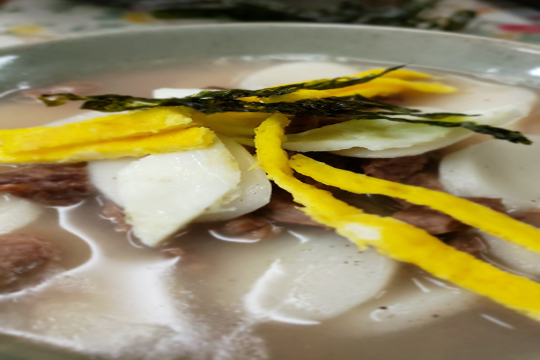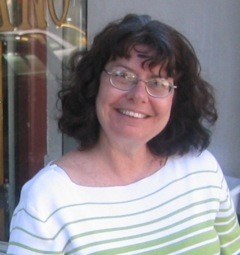
I found myself looking over a list of words from my husband's first Yiddish class with growing unease. Rather than standard language lessons, the class featured more of a story-and-culture format, with sprinklings of Yiddishisms thrown in. Yet the instructor had seen fit to hand out a list of "random" Yiddish words and their definitions – utterly useless without context. Seeing Yiddish idioms hobbled into everyday English terms and phrases gave me grief, I soon realized, because their Americanized meanings – no matter how close – were never quite correct.
Although I'd arrived in New York Harbor at the age of three months, Yiddish was my first language. Until age 3, it was my only language, at which time I was directed to speak only English at home – the better to transfer newly acquired language skills to my immigrant parents. Still, my home life and much of my social life involved daily immersion in the mamaloshen (mother tongue). My parents continued to speak Yiddish to one another, and my father tended to regress to his native tongue when addressing me, despite insisting on my English response.
Though I attended elementary school in the Bronx, I never developed the borough’s recognizable accent. I did, however, have a tendency to mispronounce English words, as much of my vocabulary was derived from books and my parents’ own mispronunciations. Before long, I was appointed – as many children of immigrants are – chief family correspondent and editor, responsible for everything from my mom's weekly lesson plans to my dad's business correspondence. As a result, I became keenly aware of differing styles of English composition and their proper use.
And even as a child, I sensed how deeply the use of language corresponds to one's daily experience. I came to understand that spoken dialects reverberate with their speakers’ heritage and deepest sense of self, and that my response to life in Yiddish differed drastically from how I felt about things in English. Indeed, language provided a weltanschauung (comprehensive outlook on life) whose influence surpassed any cultural or socioeconomic distinctions, making Yiddish words and phrases difficult – if not impossible – to translate.
Yiddish couldn’t be correctly translated into English because of the visceral – almost biological – underpinnings attached to so many of its words. To me, this old German folk dialect reverberated with the stubborn survival instincts of my parents and the weight of generations of unrequited Jewish yearning – not to mention an unapologetically cynical worldview ever-cloaked in a stinging sense of humor. The affect was unremittingly passionate; no words were minced in Yiddish’s colorful descriptions of matters and men. Great love and heartache throbbed together among its bloodstained verbs, songs were like laments, and whispered stories sank into the gut like a dybbuk from lost generations. To a kid trying to assimilate in America, it was, frankly, embarrassing.
Only much later did I come to realize that despite my strongest attempts at Americanization – including never speaking Yiddish again after I left home at 19 – the cultural impact of the language of my birth is never far from my life.
I may not yell back in Yiddish, but I remain a passionate human being who loves mit der gantze hertz (with the whole heart); I feel both pain and pleasure with my entire being, and everything matters. And, like my Yiddish-speaking forebears, I can't help taking both the people I deal with and the politics of daily life to heart – even, or perhaps especially, when it comes to interactions with members of other cultures and traditions.
A lot has been said about world travel as a conduit to world peace, fostering the idea that all humans, no matter how different on the outside, are much the same within. But I feel it's also the mere fact of knowing another language – whatever that language may be – that enables its speakers to see their own lives and the lives of everyone around them in a whole new light. Facility in multiple languages allows for richer, deeper, and broader understanding – and, with it, acceptance – of humanity as a whole.
For such acceptance, I give credit to my early years of Yiddish. Here's an everyday example: Living in South Florida, my husband and I are inundated by Latin culture. Though my husband is ethnically Jewish, he's also a third-generation U.S. citizen whom I find to be, culturally, a lot more "American" than I am – particularly in the fact that he can't abide arguing for the sake of arguing (a standard Jewish immigrant pastime) and is notably uncomfortable around loud public displays of emotion, name-calling, and boisterous behavior. On all these fronts, I can relate better to my Hispanic neighbors, likely because my Yiddish language roots make me feel at home among highly emotive, family-oriented groups.
Perhaps the mere ability to speak and think in two languages allows for greater acceptance and understanding of others, whatever their background.
Like writer expats who discover that the best way to examine their native homeland is from afar, experiencing Yiddish as my first gateway to the world has bequeathed me a lifelong outsider sensibility. Along with my fascination with language and choosing “just the right word,” it's allowed me to feel a non-native-speaker's sense of cultural distance. In my work as an essayist, it's been the perfect foil from which to discern and dissect the foibles of our everyday lives.
Related Posts

How the Pittsburgh Synagogue Shooting and Processing Grief Led Me to Heller High – and Changed My Life

Finding Emunah Amidst Fear and Uncertainty


